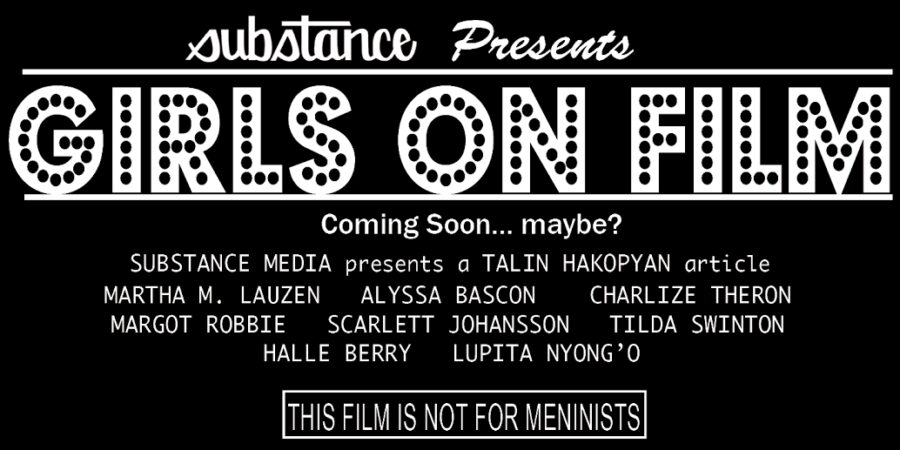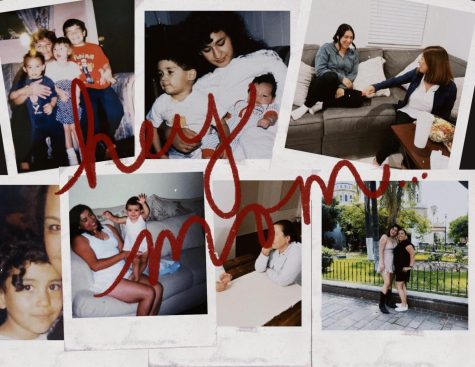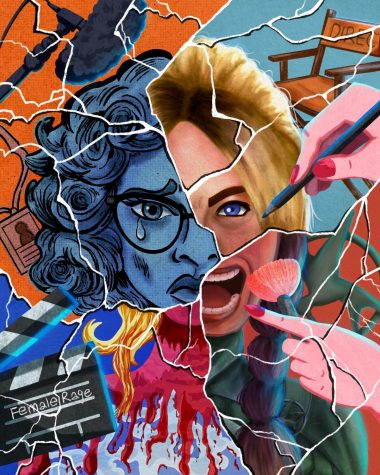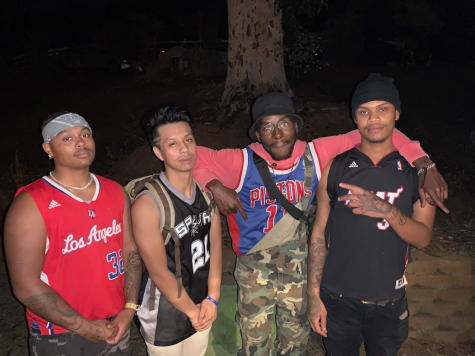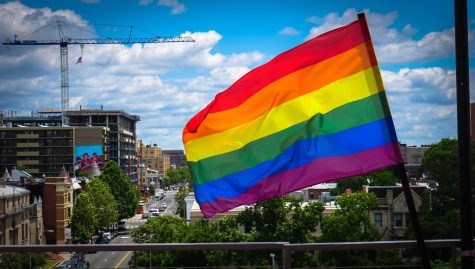Girls On Film…Maybe?
The growing gender diversity in the film industry — brought to you by women
The year is 2016. A teen from Riverside, California, otherwise known as the
“Damn Daniel” kid, received a lifetime supply of free Vans after a 30 second video went viral; Kanye West, Rihanna and Drake all released their long-awaited albums — we’re still waiting on you, Frank Ocean — Donald Trump has a 50 percent chance of calling The White House “home,” and women are still underrepresented in the movie industry. Big surprise.
Even less surprising is the knowledge that women have, for the most part, been objectified in films. The portrayal of women in our society has generally been translated to how they’ve been seen on the big screen. Hollywood has been playing the same broken record for years. But it’s time to get rid of that shitty, scratched record, pick up a new one and not only show the talent of female actors, but the power of women.
In a study conducted by Dr. Martha M. Lauzen, executive director of the Center for the Study of Women in Television and Film at San Diego State University, the percentage of female protagonists has risen to 22 percent in the top 100 domestic films of 2015. Although that is a small percentage and the group is composed of characters like Katniss Everdeen from The Hunger Games: Mockingjay — Part 2, the number or roles have increased from 10 percent in 2014 — a year that completely disregarded women in film.
The study also shows that women accounted for 34 percent of major characters and 33 percent of characters with speaking roles; 18 percent of the women in these films were the antagonists. That means that men made up more than 50 percent of the characters in these areas.
After receiving her bachelor’s degree in Digital Filmmaking and Video Production from The Art Institute of Las Vegas, Alyssa Bascon, 23, spoke about how the representation of women, behind the scenes, is equally minuscule. “I always hear ‘there’s opportunities open, there’s just no women to take them’ and that is complete bullshit. There ARE women filmmakers and there ARE opportunities, they’re just not being offered to US.
“The system is working against us, not for us and it’s apparent in the statistics.”
Bascon, a self-proclaimed feminist, believes that it’s absurd that women aren’t being recognized for their work by their peers and by society in comparison to their male counterparts. She added that “It won’t change until we, as women, insert ourselves into spaces where we aren’t recognized or welcome. I feel as though we literally have to fight for not just what we want, but for what’s right because equality is what’s right.”
Although women in the film industry have it tough, the amount of representation they have is growing.
After being nominated for 10 Oscars, and taking home six at the 2016 Academy Awards, Mad Max: Fury Road proved to be one of the most critically-acclaimed action movies released in 2015. The Wall Street Journal reported that it was, “A gleefully violent — and improbably feminist — phantasmagoria that turns epic road rage and long stretches of vehicular omnicide into an eye-boggling joy ride.”
As impressive as Tom Hardy’s extremely masculine and rugged portrayal of Max Rockatansky was, he made more of a cameo while the film belonged to the badass amputee Imperator Furiosa, who was played by Charlize Theron. The cinematic details and the intricate costume design played a huge role in the film, but it’s the story of a feminist revolution led by Furiosa, against her leader and warlord, Immortan Joe.
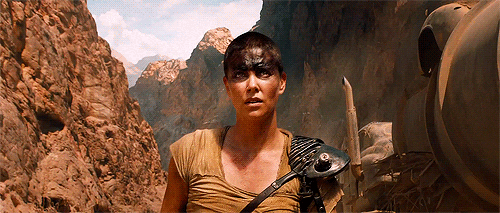
George Miller, the film’s director, explained that the story needed a heroine, instead of just female characters, like the five wives who are trying to escape Immortan Joe, skull mask and all.
“An initial idea was to see, if the film was an extended chase, how much could people pick up on the run? And the notion being that what was in conflict was to be human, and it was five wives escaping a tyrannical warlord, and needed a female road warrior. It couldn’t be male. So there was Furiosa, and the rest followed.”
In a post-apocalyptic situation, the wives didn’t turn into assassins to defeat the War Boys and Immortan Joe, nor did they become submissive and stop their journey. Instead, they took Furiosa’s lead and worked together throughout the whole film in hopes of grasping freedom.
Theron believes George Miller showed the truth of who women are and how powerful they are. “Women thrive in being many things. We can be just as dark and light as men. We’re more than just nurturers, more than just breeders, we’re just as conflicted. Not to brag, but I think women are better at embracing the dichotomy of the yin and the yang than men.”
Without a doubt, the praise surrounding Furiosa’s importance to Mad Max: Fury Road, influenced Hollywood to embrace women and give them roles that have more substance, rather than portraying them as just sex objects.
Despite the vast majority of roles in film being significantly male, actresses like Australian-native Margot Robbie, who’s claim to fame was her sexual prowess alongside Leonardo DiCaprio in the 2013 film The Wolf of Wall Street, have taken a stand and refused to play male-dependent roles.
In an interview with Australian print magazine “Woman’s Day,” the 25-year-old expressed how her roles in The Wolf of Wall Street and Focus have given her the chance to play “charismatic and clever women. Even though they do have a glamorous side.”
In both of these films, her characters were extremely vital to the respective storylines and gave her a chance to go against the stereotype that a female’s role in a movie is based upon her male counterpart.
Robbie said, “I want to keep looking for roles where the main interest will be in the character and her importance in driving a story forward, rather than her relationship with a male character.”
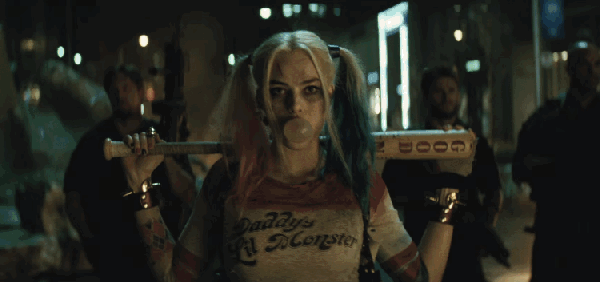
Robbie will be playing Harley Quinn, the former Arkham Asylum psychologist turned Joker-loving supervillain, in the highly-anticipated DC Entertainment film, Suicide Squad.
Since taking on the role, Robbie has pushed Warner Bros. for a new movie dedicated to the female heroes and villains within the DC Universe, something the studio has just recently committed to. Rather than being a solo Harley Quinn film, Robbie’s character will star along heroines like Batgirl and the Birds of Prey. Details regarding production are being heavily guarded, but it’s been released that Robbie brought in a female writer for the film.
The world was torn into two when Marvel Studios asked fans to choose a side regarding Captain America: Civil War. With extreme publicity and a millennial approach towards marketing, the phrase “#TeamCap or #TeamIronMan?” caused mass hysteria around the globe.
While the chaos of an epic battle between friends ensued and Spiderman and Black Panther were revealed, Black Widow’s character evolution from the first time we saw her in Iron Man 2, and more recently, The Avengers: Age of Ultron, has been extraordinary.
Black Widow, or Natasha Romanoff, went from a sexually objectified, trained and tortured assassin and the cause of Bruce Banner’s sexual angst to the immediate voice of reason in Civil War. Although she sided with Tony Stark, she was emotionally there for Steve Rogers in his desperate times of need and understood where he was coming from since she witnessed Steve’s attachment and loyalty to longterm friend-turned-brainwashed-killer Bucky Barnes in Captain America: The Winter Soldier.
Spoiler alert: she went against her respective team and let Steve and Bucky escape. Although she was on Team Iron Man, she created a third team. A team of reason.
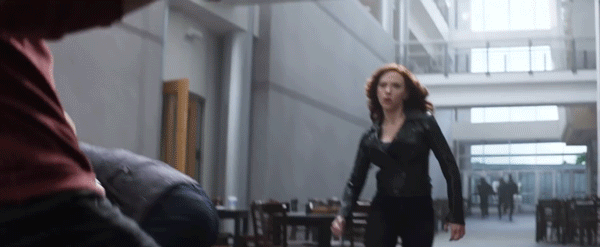
She became a central piece to the film’s storyline and wasn’t in the background as just a love interest or a character portrayed in a very provocative way to get more ratings; nor were Sharon Carter and Wanda Maximoff (better known as Scarlet Witch).
While most of the men in the Marvel Cinematic Universe, not just those in The Avengers, all have their own movies and franchises, Marvel’s struggle with gender diversity will soon come to an end.
In an interview with Deadline, President of Marvel Studios Kevin Feige released that “creatively and emotionally” they are committed on giving Black Widow her own film. He went on to praise Scarlett Johansson’s portrayal of the character and said, “She’s a lead Avenger and has amazing stories in her own right to tell that we think would be fun to turn into a stand-alone franchise.”
Fiege also addressed the controversy surrounding the casting in Doctor Strange, where Tilda Swinton, a white woman, will be playing “The Ancient One,” who is a Tibetan monk and exclusively male in the comics. He said that the casting of the role was a major topic of conversation both in the developmental and creative process of the story and was not meant to be political in any sense.
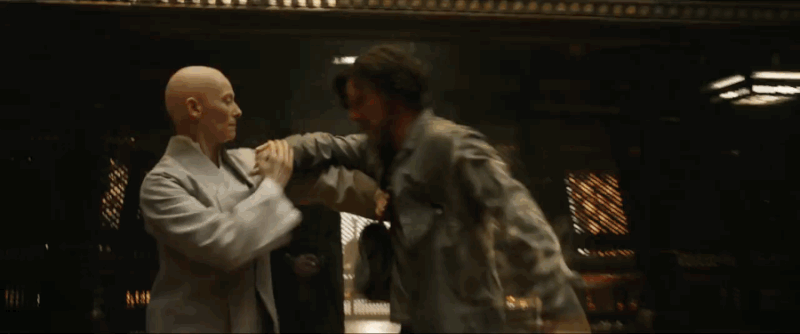
“We felt the idea of gender swapping the role of The Ancient One was exciting. Why not make the wisest bestower of knowledge in the universe to our heroes in the particular film a woman instead of a man?”
Bascon, who is Asian-American, understood Fiege’s choice of gender-swapping the role of The Ancient One in hopes of showing diversity in Marvel, but also believes that it failed miserably since the role was not given to a female Asian actress.
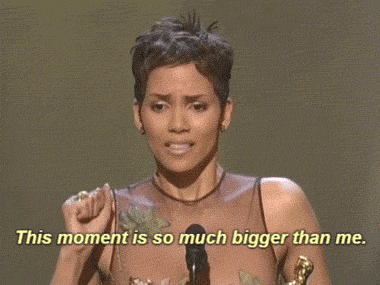
As difficult as it is for white women to acquire roles, women of color are at a higher disadvantage due to the whitewashing of Hollywood. After becoming the first African-American woman to win an Oscar for Best Actress for the 2002 romantic-drama, Monster Ball, Halle Berry gave an emotional speech where she said, “This moment is so much bigger than me … it’s for every nameless, faceless woman of color that now has a chance because this door tonight has been opened. Thank you. I’m so honored.” Berry is still the only woman of color to have have won this award.
When Lupita Nyong’o won Best Supporting Actress for her performance in 12 Years a Slave at the 2014 Oscars she said, “When I look down at this golden statue, may it remind me and every little child that no matter where you’re from, your dreams are valid.”
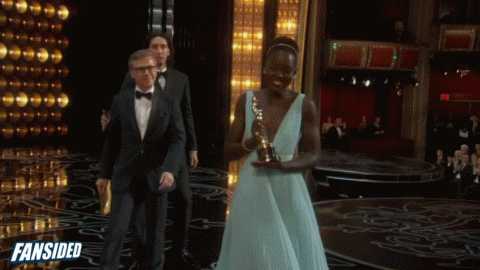
Nyong’o revealed that she received a letter from a girl who said “I think you’re really lucky to be this Black, but yet this successful in Hollywood overnight. I was just about to buy Dencia’s Whitenicious cream to lighten my skin when you appeared on the world map and saved me.”
This is just an example that shows just how powerful films can be in influencing young women to love themselves for who they are and venture into industries that are male-dominated.
Along with her partner, Kristina Summer, Bascon decided to found a film company called “Girls on the Moon,” where their goals are driven by their passion to tell stories that are truthful to the human experience. “It is the foundation for what we strive towards which is ultimately to inspire other female filmmakers.”
The filmmaker/actress duo hope to inspire everyone, not just women, to follow their dreams. However, Bascon said, “It’s also important to us that we acknowledge the lack of representation of women in the film industry and let other females know that there is a place for them in the industry, we as women just have to claim it.”
The pair’s latest project, “Letters I’ll Never Send,” was screened at the 2016 Las Vegas Film Festival, held in Downtown Las Vegas. The two said that “This film challenged us physically and emotionally but we couldn’t be more excited for its official debut.” They also thanked their wonderful team and supporters for their help in making this achievement possible.
“It’s difficult to address the many problems of Hollywood such as whitewashing, sexism, racism, without questioning why I want to even be a part of it. But that’s where I’ve realized that I don’t want to be a part of it, I want to change it,” said Bascon.
While women have come a long way from being an accessory to movies and the film industry, progress has been and is being made. With support from some of the most powerful women, and men, in Hollywood speaking up about gender diversity, the representation of females and the roles they are cast in will hopefully inspire young women to be whatever they want to be.
The impact movies have on society are profound. For two hours, or whatever it may be, you can dive into a world where anything is possible; depending on the movie, your outlook on a topic can change.
Bascon’s last remark was that, “Progress is slow, the industry still has a very long way to go but I am confident that with older generations dying out and future generations coming, the industry will become a place where creativity, diversity, equality, and art can thrive.”
And all I want is to see some fierce and badass ladies slaying the silver screen, in front of, and behind the scenes. In IMAX. With a cherry Slurpee and a large popcorn with extra butter and salt. Also, maybe reclining seats. But you get the point.

